It’s a good time to buy a campground.
Well, there are about 16,000 campgrounds in the US and 40 million Americans RVing regularly. This means that even if every RVer camped for one night at a rate of $30, and we were to distribute them evenly amongst every park, campgrounds would still make $75,000 a year.
So, it’s definitely a favorable market for park operators.
But how much does a campground cost? Should you buy an existing park or build one from scratch? Where can you find parks for sale?
To get an accurate idea of what an RV park will cost, we put together a list of considerations and resources for prospective operators looking to make a purchase.
Buying an existing RV park.
In terms of upfront expenses and labor, buying an established campground will likely be an easier option, especially for first-time park owners. If you’re green to the market, here are a few things that will be helpful to understand.
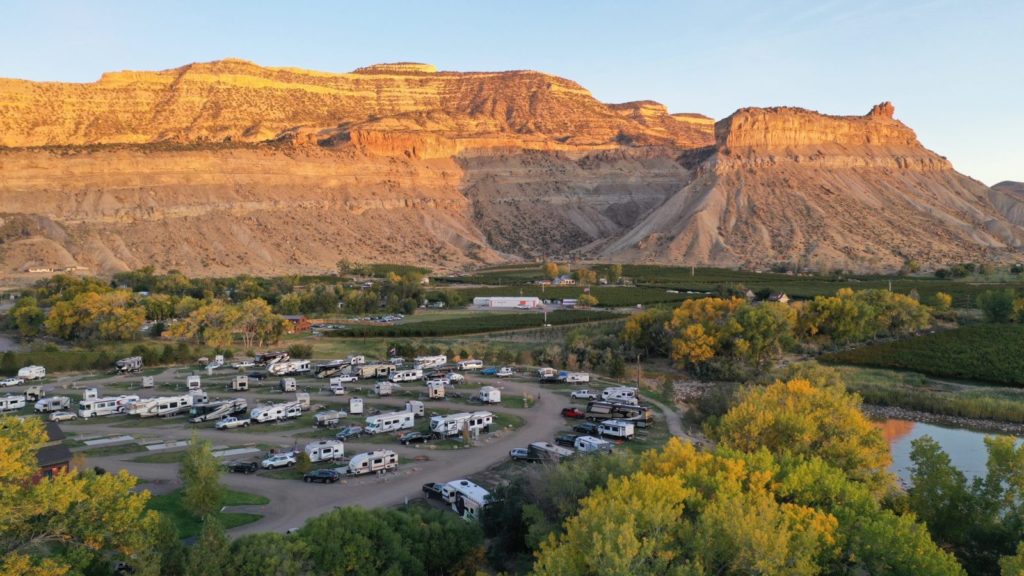
Initial costs.
An established park, with infrastructure already built, costs between $100,000 to $2 million. It’s also safe to assume that some level of repairs and TLC will be required.
If you’re buying an RV park that’s already built, “the upfront costs might be higher, but your revenue might be higher as well.” Not including the cost of the property, a “campground business can cost around $10,000 to $50,000.”
Additionally, the cost of land ranges from $1,000 an acre to upwards of $10,000 for more desirable lots.
Cap rates.
A cap rate is a formula that shows you how long it will take for your campground to break even from your initial investment.
To find the cap rate, calculate the net operating income (NOI) and divide it by the property value. So, if your property is worth $2 million, and you have an NOI of $150,000, your cap rate would be 7.5 percent.
Cap rates in the campground market can range from 5 percent to 15 percent – with most parks falling between 8 percent to 11 percent.
Hospitality expert and campground owner, Heath Padgett, says that many campground owners “aren’t valuing their property based on capitalization rates,” meaning that you’ll have a decent return on investment if you can even slightly improve the process.
It’s worth noting that cap rates depend on location. For example, an 8 cap rate for a park outside of Seattle will mean something very different than an 8 percent cap rate in North Dakota. When comparing cap rates, look at parks in your area or similar regions.
Insurance.
“The average campground in America spends between $450-$1,500 per year for $1 million in general liability coverage.”
You can also find plenty of insurance resources through your local campground association.
Renovations.
Depending on the current state of the park renovation costs will certainly vary; however, it’s safe to estimate $10,000 to $50,000. That number can certainly escalate depending on whether you need to bring electricity up to code or fix any major systems within the park.
To cover your bases, make a point of hiring an inspector or contractor to examine your campground before purchasing.
Building an RV park from scratch.
While inheriting or fixing up an existing campground will likely be a less expensive way to go, you might find that existing parks don’t match your vision, and it’s still worth your while to build something from scratch.
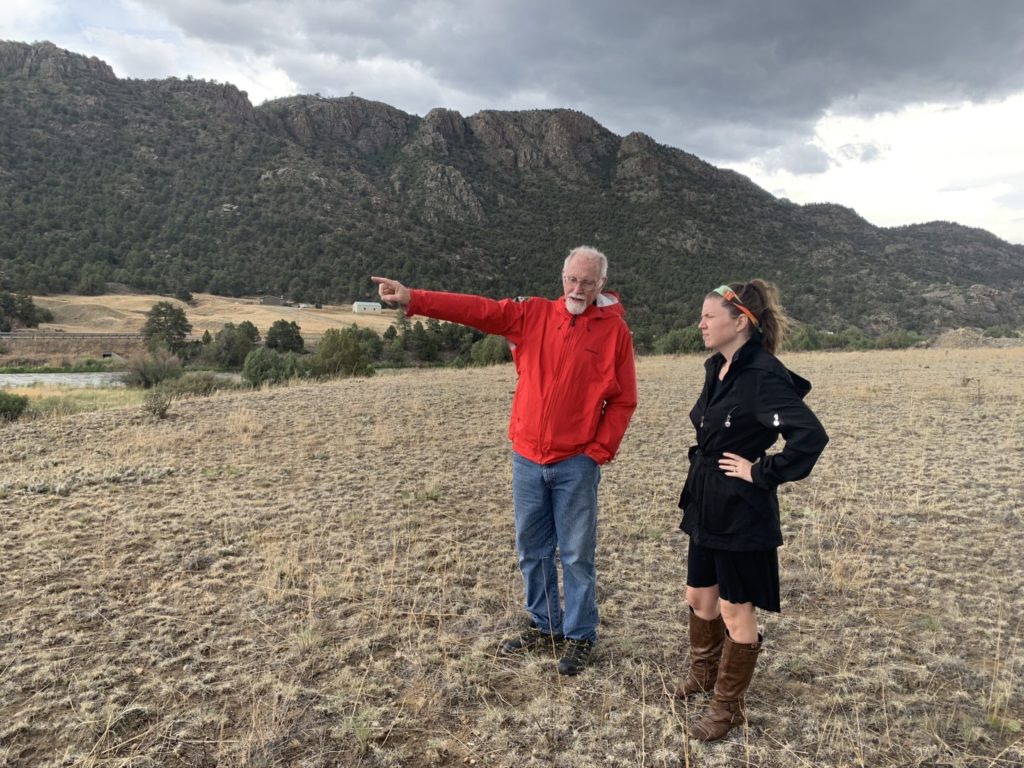
If you’re breaking ground on a new build, make it a point to think through each of the following.
Land.
Obviously, the cost of land depends on what part of the country you’re in, however, the national average is about $3,000 an acre.
Licensing and permits.
While renewals and specific requirements vary from state to state, you’ll quickly find that with any new build comes the need for permits and licensing.
Whether it’s zoning, or support from others who have been in the weeds of constructing a park, joining a local campground association can save you from a number of headaches.
Cost per site.
We surveyed a few of our campgrounds, and on average it costs around $15,000 per site for full-hookups, gravel roads, and pads.
Slips can “range anywhere from $15,000 to $50,000 per site depending upon the amenities you plan to install.”
Electric.
Most of our campgrounds provide 15-amp, 30-amp, and 50-amp options along with outlets for 110/120 volts (which costs around $1,500 and $2,500 per site).
Water.
Drilling a 150-foot well can cost between $5,000 and $12,000 (not including the cost of piping), while city water hookups can cost around $1,200 per site.
Septic system.
You can generally expect that a site-by-site septic system requiring a tank and leach field plus piping to campsites will cost upwards of $40,000 altogether.
That being said, installing a dump station for guests will cut down your costs by 75 percent. However, you’ll be able to charge more per night if you provide full hookups.
Site development.
In addition to building out your sites, you’ll want to invest in asphalt, concrete, or gravel for leveling and paving out your roads as another big-ticket item for your park.
Number of sites.
Ten sites per acre is a general rule of thumb – not counting 5th wheels and other larger motorhomes. With that, it will cost about $15,000 per site to develop; so to get an idea of how much it will cost to build out your park, multiply your total acres by 10, and then by $15,000.
Buildings and infrastructure.
The reality is that if you’re starting from scratch, you’ll need to factor in more than just a few campsites with hookups. As you design and build out your park, think through office space, restrooms, cabins, and other permanent fixtures your guests will benefit from.
Restrooms.
Our survey results have found that a clean restroom with good water pressure is among the 10 most sought-after amenities a park could offer (according to guests), and will run you about $20,000.
If you’re looking to improve your restrooms, check out this helpful PDF with designs and materials for camp bathrooms.
Office.
Offices can range between $15,000 and $80,000, or $100 to $550 per square foot and will require a strong internet connection to manage reservations.
Also worth note, about 42 percent of professionals currently work remotely, meaning there could be an opportunity to double your office as a co-working space to attract more long-term guests.
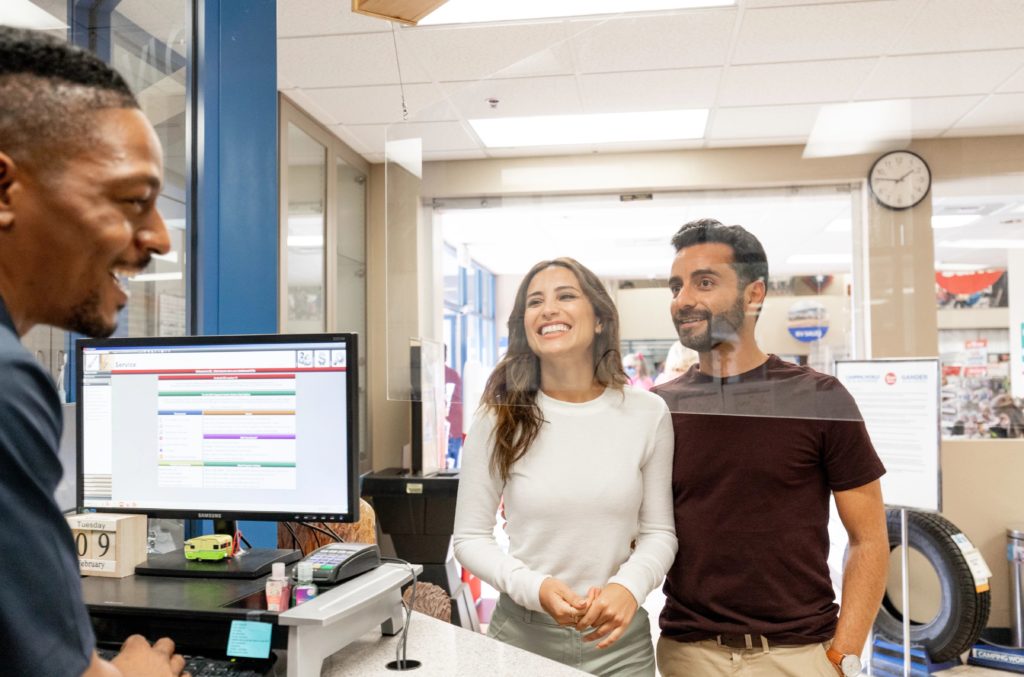
High-speed internet.
Quality WiFi is easily one of the most worthwhile investments you could make, considering that 71 percent of RVers consider it to be an “essential” amenity.
If you’re looking at setting up WiFi at your campground, you can usually find a high-speed provider with a decent download speed for around $250 a month. Even if your campground is more rural, you shouldn’t have to pay more than $500 at the most, with an initial setup (routers, ethernet, wifi repeaters) around $3,000.
Websites for buying campgrounds.
Once you have an idea of what type of park you’re looking to invest in, make sure you go through the right channels with companies that understand the industry.
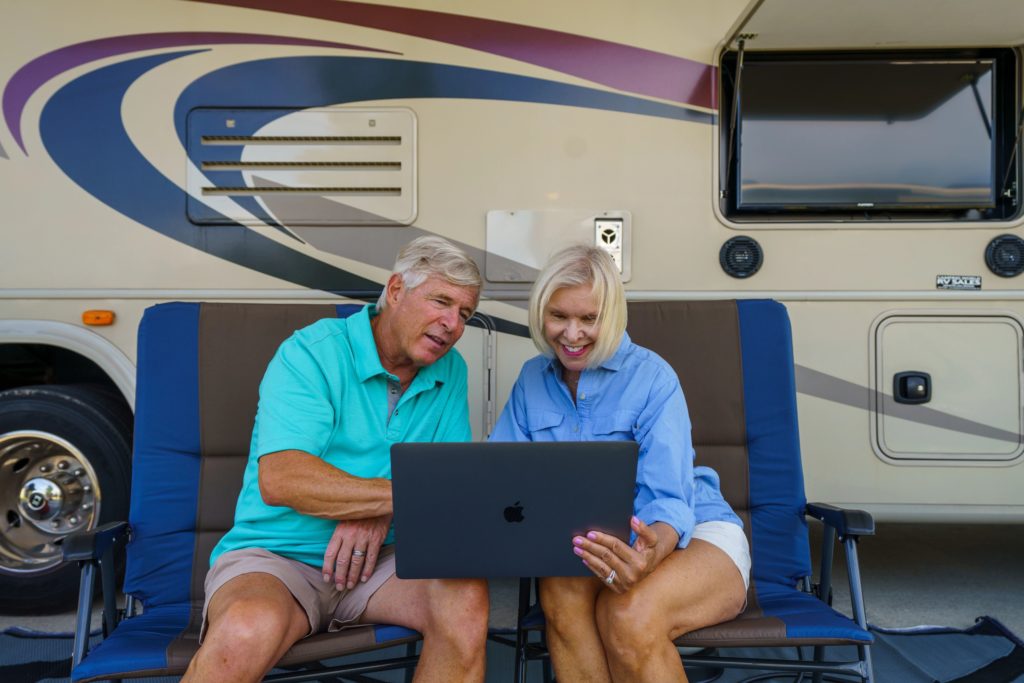
Here are four sites that can help find a park that’s right for you.
1. The Campground Connection
Based out of Grandville, Michigan, Campground Connection is a full-service, voice-to-voice consulting and marketing company based in Grandville, Michigan.
They exclusively work with campgrounds and RV parks, providing coaching and resources, along with the largest online marketplace for prospective owners.
2. RVParkStore.com
A resource for investors, owners, and travelers alike, RVParkStore also has a large list of RV parks and marinas, as well as plenty of industry insight to assist in your search.
3. Parksandplaces.com
With over 50 years of experience, the team at Parks and Places has been able to sell over 100 parks for owners and is another great option for those looking to buy.
4. Campgroundsforsale.com
Campgrounds for Sale has sold over 300 parks while providing workshops, blogs, and connections within the industry.
Procuring funding.
While campgrounds are a big investment, once you’ve found the right spot, there are plenty of ways to reasonably finance your park.
Seller financing.
This is where the seller of the RV park directly issues a loan to the buyer. The new owner will then make regular payments to the previous owner until the campground is paid off. The repayment terms and interest rates tend to be agreed-upon terms, and are recognized as a deed or mortgage.
Mortgage-backed securities and collateralized mortgage obligations.
Similar to bonds, mortgage-backed securities (MBS) allow a lender to issue a loan to multiple parties and bundle the loans together to sell to a larger bank. That bank will then sell the MBS to investors, who will then receive payments periodically.
Along the same lines, a collateralized mortgage obligation (CMO) is a variation of an MBS, where mortgages are assessed and bundled by risk and maturity dates. Investors will then fund those specific mortgages based on their level of risk-aversion.
Investors gravitate towards MBS and CMOs because it allows them to benefit financially without buying or selling a loan. Usually, MBS and CMOs are financed by banks, issuers, and hedge funds.
Conventional loan.
One of the more straightforward options, a conventional loan (or uninsured loan) can be obtained through a private lender and paid back by the new park owner. That being said, it also comes with fewer guarantees.
Credit union.
Albeit a more limited offering, credit unions offer lower interest mortgages with more personable service. Not to mention, it’s generally easier to get approved through a credit union.
Local banks.
While community banks provide a wider variety of loans, they’ll come at a steeper interest rate. Local banks, however, tend to offer more assistance and better customer service for prospective owners in the area.
Nonbank lenders.
If you’re uncomfortable going through a bank, you can also find a list of non-bank lenders with plenty of experience working with campgrounds.
Additionally, RVParkStore also provides its own mixed list of lenders.
SBA loans.
In general, SBA loans are flexible options.
The Small Business Administration (SBA) was designed to provide assistance for small businesses (including campgrounds), and offers loans with generous term lengths and capped interest rates.
You can also receive financing up to 90 percent of the park’s cost, as well as smaller options for down payments.
Helpful steps along the way.
Any park owner will tell you that no matter how simple of a process it is to buy a campground, things still come out of the woodwork. To ensure the smoothest possible process, take a few extra precautions along the way.
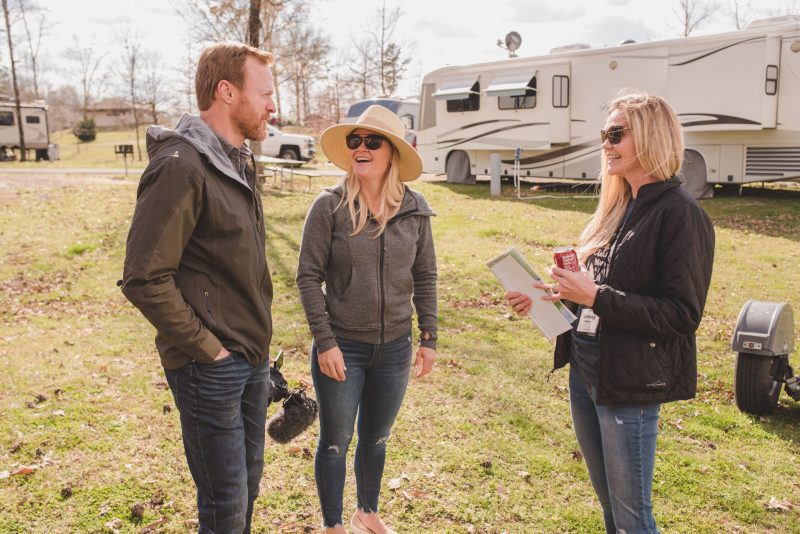
Review profit and loss statements for the campground.
A profit and loss (P&L) statement will show you the revenue and costs to give you an idea of how the park has performed over a fiscal year.
It’s probably in your best interest to go back through the P&Ls of the last few years to get a sense of what to expect. From there you’ll be better armed to think through how you can elevate the financial performance of the campground.
Get a land survey.
While it may not be required, it’s in your best interest to get the land surveyed.
You might find hazardous areas, restrictions, various legal elements, or levels of elevation that have gone unnoticed. Usually, a survey will last 5 to 10 years, so chances are the property could use it anyways.
Make a note to check for previous records (which should be available at the local courthouse or assessor’s office) and hire an experienced surveyor to make sure everything is copacetic.
Shadow the previous operators.
No matter how savvy you are, it’s just a good idea to understand how your predecessors ran the business. More likely than not, they’d probably be willing to show you around and give you an honest idea of what to expect.
Ask questions and consider how they managed reservations, what their obstacles are, or even just how the campground functions over a weekend. The more insight you have the better you’ll set yourself up for success.
Understand your guests.
Knowing your customers and how to best serve them will go a long way.
Take time to check reviews online and get a feel for what guests appreciate most about the park. Chat with the current owners or send out a survey to identify what demographics your park caters to. Do you have long-term guests? Do you have families? Do your guests want new amenities?
Start your relationships out on the best foot possible.
Negotiate the asking price.
Between closing costs, closings dates, and sales price, you’ll probably find there’s room for negotiation. It helps to have a real estate agent or broker involved with the process, but here are a few things to consider:
- Sellers are more likely to work with you if you can get a mortgage in principle.
- Research the actual market value of the campground on your own.
- Market yourself as the ideal buyer (a real estate agent helps here).
- Imply that you’re also looking at other campgrounds.
- Start with a lower offer than what you’re willing to pay.
- If they’re unwilling to budge on price, add in extra requests and see what they’re willing to match.
A campground is a great investment.
The reality is that buying a campground will serve you well.
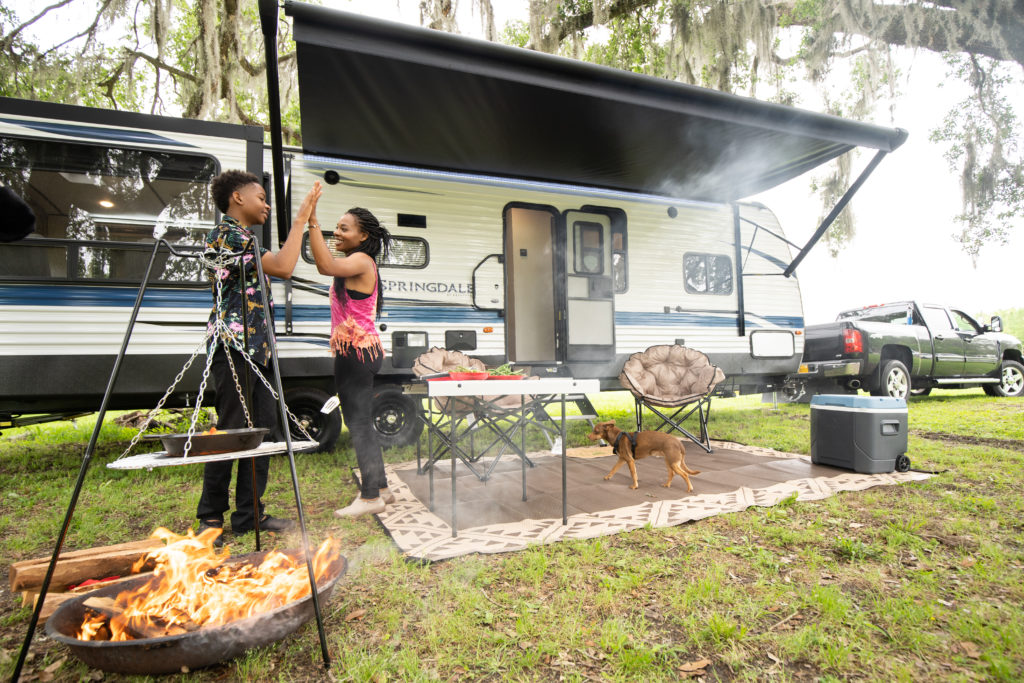
To get an accurate estimate of how much you can expect to invest, add up the cost of the property, each and every additional site, buildings, and setup fees.
From there, evaluate your options financially and go through a website that specializes in campgrounds, while bringing in the right team to give your park a good foundation from the start.
With the right resources and financial backing, your campground is bound to thrive.
Ready to buy a campground?
If you’re in the market for a campground, Good Sam provides a number of campground services to give owners the tools they need to get their business off the ground. Whether it’s marketing and advertising, online reservations, or access to a network of over 2 million RVers, Good Sam makes managing a park as easy as possible. If you’re ready to get started we can help! Request a demo today.